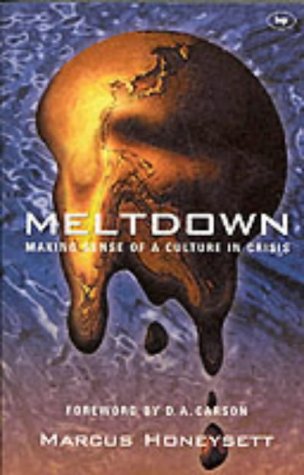A Brief Book Summary from Books At a Glance
By Steve West
About the Author
Marcus Honeysett worked with university ministries in the UK. He studied English, Theatre, and Postmodern culture and theory.
Introduction
This book examines five key postmodern thinkers and explains and analyzes their contributions. Then Honeysett exposits the nature of the postmodern challenge in society, providing constructive tips as he goes. He calls Christians to an informed and robust engagement with postmodern culture, under the unique authority of Christ and God’s revelation in Scripture.
Table of Contents
Chapter 1 The Disappearance of Authority
Chapter 2 Absolute Truth and Revelation are Unacceptable
Chapter 3 How Do We Know What is Important?
Chapter 4 What Does it Mean to Be a Person?
Chapter 5 How Can We Know What is Real?
Chapter 6 The Changing Culture and the Postmodern University
Chapter 7 Postmodern Christian Living 1: Postmodern Bible Reading?
Chapter 8 Postmodern Christian Living 2: The Postmodern Church
Chapter 9 The Immorality of Postmodernism
Chapter 10 TV and Moral Collapse
Chapter 11 Conclusions: Proclaiming the Authentic Jesus
Summary
Chapter 1: The Disappearance of Authority
Case Study: A TV producer who is a Christian is trying to depict historical truth, but they are challenged by others who insist that we cannot know the truth about history. History is written by the winners and since we were not there, we can only see biased reporting. Since Christianity makes historical claims, it is also suspect.
An important assumption underlying the objection is that we cannot really know someone through their writings. Michel Foucault argued that the idea of an authoritative Author who controls the meaning of their text was a modern invention. Since the author cannot control our reading of their works, we can use them and interpret them as we want. (The author may also have miscommunicated what they meant to say.) Authors are not authorities over their own works. The idea of a “text” goes beyond books and writing to art, social interactions, etc.
The whole world can be considered a text. Christians believe that we can have knowledge because God is truth and he communicates clearly. Foucault’s position was anti-authority and led to unbridled immorality. Biblical studies should try to determine the meaning of the text, which was the meaning of the authors. There is truth in the position that we cannot know all of the context and everything the author intended, but that doesn’t mean we can’t know anything at all. As image bearers of God we have much in common and can communicate. The Bible is also a unique text because it is the communication of God. Inside of the Christian worldview there is truth, coherence, and a strong ethic by which we can flourish. God—the author—is the authority.
Chapter 2: Absolute Truth and Revelation are Unacceptable
Case Study: A Christian leader on campus is studying classics. The department is influenced heavily by the theories of Derrida. They are told that they cannot know the meaning of ancient texts, that texts always contradict each other, and that therefore texts can be used for the reader’s agendas. This has led to using ancient texts to support gay rights and other politically correct issues.
Derrida stressed that since there is no God we need to live in a world without absolutes. He argued that the binary of true and false was too limiting and kept people from exploring. Because there is no real center that holds reality together, we can play and imagine, thinking whatever we want. To think in terms of absolutes is oppressive and coercive. Christianity is responsible for absolutes and it is unethical to think in Christian terms. Derrida argued. . .
[To continue reading this summary, please see below....]The remainder of this article is premium content. Become a member to continue reading.
Already have an account? Sign In
Buy the books

Meltdown: Making Sense of a Culture in Crisis